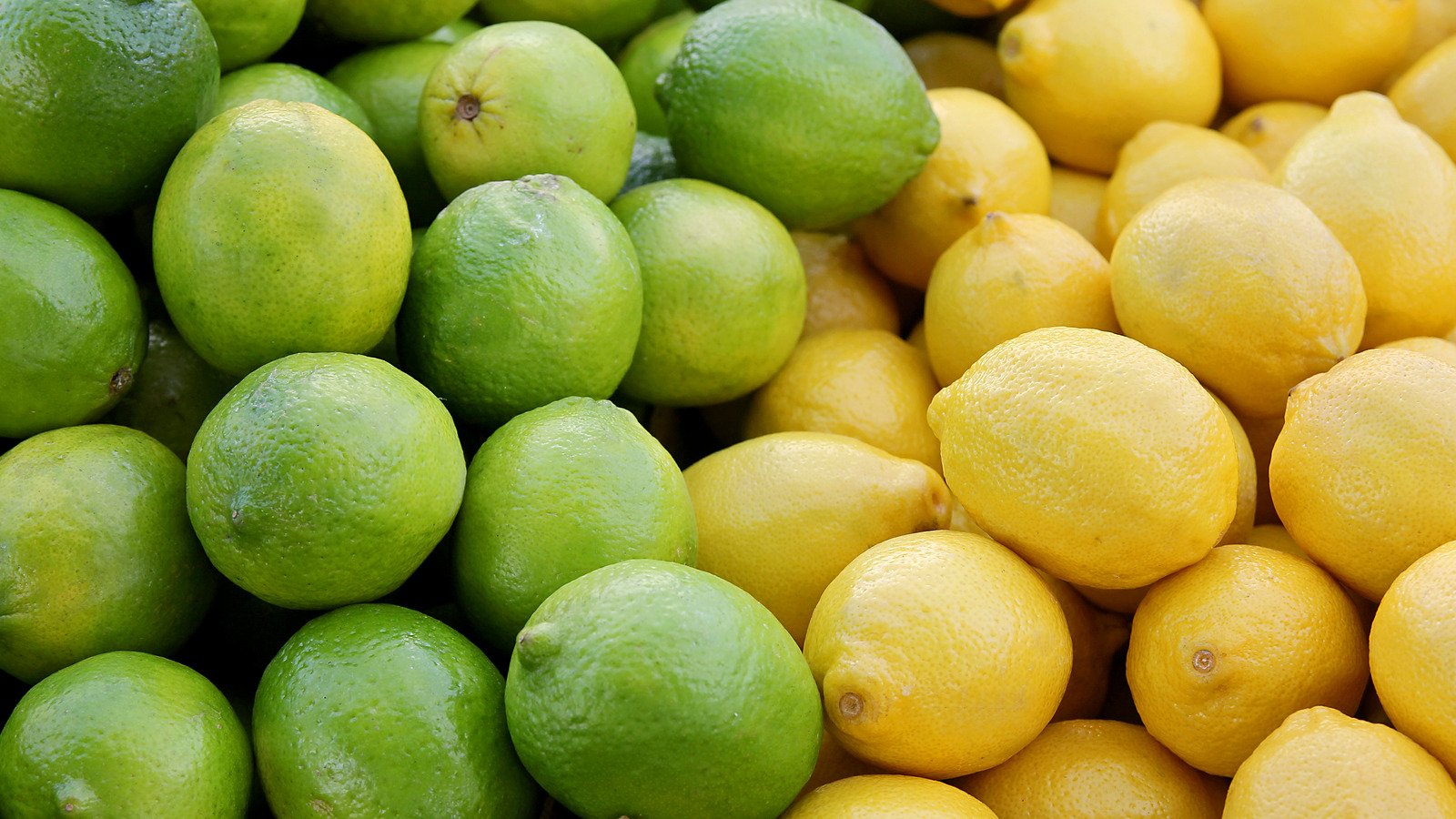When Are Lemon And Lime Juice Actually Interchangeable?
Have you ever been in the middle of a recipe, only to realize that you are missing a key ingredient? If you love cooking or baking, you have probably encountered this frustrating situation at some point. One common substitution is swapping lemon juice for lime juice and vice versa. While lemons and limes might seem similar, they do have distinct flavors. However, there are certain situations where lemon and lime juice can be used interchangeably. So let’s dive in and explore when you can switch these citrus juices without compromising the final result!
Understanding the Differences Between Lemon and Lime
Before we can determine when lemon and lime juice are interchangeable, it’s important to understand the unique characteristics of each citrus fruit:
Lemons:
Lemons are known for their bright yellow color and sour taste with a subtle sweetness. They are often used in both sweet and savory dishes, providing a refreshing and tangy flavor. Lemons are frequently used in beverages like lemonade or as a garnish for seafood or salads.
Limes:
Limes, on the other hand, are slightly smaller and rounder than lemons. They have a vibrant green color and are intensely tart. Limes are commonly used in Mexican, Thai, and Indian cuisines, offering a unique and zesty taste. They pair exceptionally well with seafood, guacamole, and cocktails.
When Can You Swap Lemon and Lime Juice?
While lemons and limes have distinct flavor profiles, there are instances when their juices can be used interchangeably without dramatically altering the outcome of a dish. Here are a few situations where you can make the switch:
1. Salad Dressings:
When preparing a simple vinaigrette or salad dressing, you can easily substitute lemon juice for lime juice or vice versa. Both citrus juices provide a tangy and acidic element, which enhances the overall flavor of the dressing. Whether you are dressing a green salad or making a citrus-based dressing for a fruit salad, swapping lemon and lime juice won’t significantly impact the final result.
2. Cocktails and Beverages:
Lemon and lime juices are popular ingredients in a wide range of cocktails and beverages. From classic margaritas to refreshing lemonade, the citrusy zing enhances the flavor profile of these drinks. While the specific fruit might slightly alter the taste, you can generally interchange lemon and lime juice in most beverage recipes. Adjust the quantity to achieve the desired level of tartness.
3. Marinades and Sauces:
Marinades and sauces often rely on the acidity and brightness of citrus juices to tenderize meats and add a burst of flavor. Lemon and lime juice can be used interchangeably in these recipes, as both provide the necessary tanginess. Whether you are preparing a marinade for chicken or a citrus-based sauce for fish, feel free to use the juice that is readily available without fear of compromising the dish.
When Should You Stick to the Original Citrus?
While there are scenarios where lemon and lime juice are easily interchangeable, there are instances when sticking to the original citrus is crucial. Here are a few situations where you should avoid swapping:
1. Key Lime Pie:
Key lime pie is a classic dessert that primarily relies on the distinctive flavor of limes. The tartness and unique taste of key lime juice give this pie its signature tang. Swapping lemon juice might result in a milder flavor that deviates from the traditional taste of the pie. For the authentic key lime pie experience, it is best to use fresh lime juice.
2. Citrus-Based Sauces With Specific Cultures:
Some cuisines have specific dishes or sauces that are traditionally made with either lemon or lime juice. For example, in Mexican cuisine, dishes like ceviche or guacamole typically call for lime juice. Similarly, lemon juice is commonly used in Mediterranean dishes like Greek tzatziki sauce. If you are aiming for an authentic flavor, it’s recommended to use the citrus juice specified in traditional recipes.
3. Desserts Requiring Specific Citrus:
When it comes to desserts like lemon bars, lemon meringue pie, or lime curd, it is crucial to stick to the specified citrus juice. The flavors in these desserts are specifically designed to complement either lemon or lime, and substituting one for the other might result in a noticeable difference in taste.
In conclusion,
While lemon and lime juice each have their distinctive flavor profiles, there are numerous circumstances where they can be interchangeably used. Salad dressings, cocktails, marinades, and sauces often allow for such substitutions. However, for specific dishes like key lime pie or cultural cuisines with traditional recipes, it is best to stick to the original citrus juice. Remember, cooking and baking are all about experimentation, so don’t be afraid to try new combinations and see what works best for your palate!
*Source www.foodrepublic.com




































